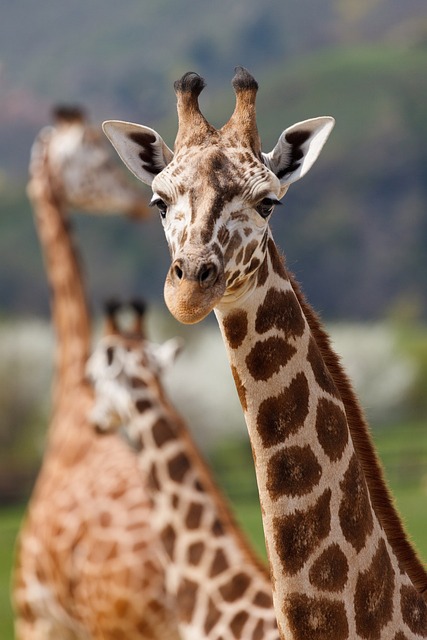November 21, 2024 - WASHINGTON - In response to a petition and lawsuit by conservation and animal protection groups, the U.S. Fish and  Wildlife Service on Wednesday proposed listing four species of giraffes as under the Endangered Species Act.
Wildlife Service on Wednesday proposed listing four species of giraffes as under the Endangered Species Act.
Image by PublicDomainPictures from Pixabay
The Center for Biological Diversity, Humane Society International and the Humane Society of the United States petitioned for protections for giraffes in April 2017. But it took a lawsuit in October 2021 for the Fish and Wildlife Service to commit to a deadline to decide whether the species warrants protections—a decision that should have been made in 2018 under the law.
“These gentle giants are suffering a silent extinction, and Endangered Species Act safeguards will curb U.S. imports of giraffe skins and other body parts,” said Tanya Sanerib, international legal director at the Center for Biological Diversity. “The proposed protections are good news for giraffes, but it’s tragic that it took seven years to get here. U.S. officials should be racing like a cheetah to fight the global extinction crisis, but they’re actually moving at a snail’s pace to protect imperiled wildlife.”
With fewer than 69,000 mature individuals remaining in the wild, giraffe populations have dropped nearly 40% because of habitat loss, civil unrest, poaching and human-caused habitat changes. The international trade in bone carvings, skins and trophies puts additional pressure on these iconic animals. The proposed listing recognizes four species of giraffe, designating the northern giraffe as endangered, two eastern species as threatened, and listing the southern species under the similarity of appearance provision.
Nicholas Arrivo, managing attorney for Humane Society International and the Humane Society of the United States, said: “It’s about time that these magnificent animals are close to finally getting the protections they deserve. Giraffes mature slowly and only have a few calves in their lifetime, so they are sensitive to overexploitation. They are rapidly disappearing from our planet with nearly 40% gone in just three decades due to habitat loss, poaching and other threats. Further, the demand for their parts is deplorable, with the United States the top importer and exporter of giraffe parts including their heads, legs, tails and skins. Today makes us hopeful that the outsized contribution by the U.S. to this demand will be reduced.”
The International Union for Conservation of Nature assessed giraffes as vulnerable to extinction in 2016 and classified the northern Kordofan and Nubian giraffe subspecies as Critically Endangered in 2018 and the eastern reticulated and Masai subspecies as Endangered in 2018 and 2019.
Parties to the Convention on International Trade in Endangered Species decided in 2019 to regulate international trade in giraffes by requiring export permits. This also marked the first opportunity to assess the global trade of giraffe parts and products which had been globally unmonitored prior to this listing. Because these protections do not foreclose the giraffe trade and because of the species’ decline, conservation safeguards are crucial for importing countries, such as the United States, that create demand for giraffe parts.
Today’s decision opens a 90-day comment period, and a final listing decision should be made within a year.
Source: Humane Society of the United States








